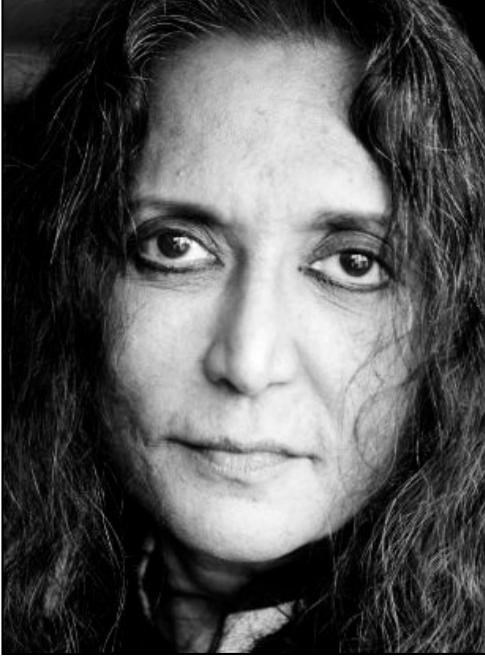Throughout the lengthy and beleaguered journey of Deepa Mehta's ambitious historical epic Midnight's Children, there was frustration, elation and exhaustion.
Now, there is relief.
Mehta says she's eager to finally bring her big-screen take on Salman Rushdie's acclaimed novel to a hometown crowd at the Toronto International Film Festival this weekend. She revels in the fact that it's already secured a global theatrical release, allowing her to soak in the festivities as just another movie fan.
"I'm actually enjoying myself because I don't have to worry about sales," Mehta says in a recent interview at her downtown production office.
"I just have to hope that people enjoy it and go for the ride.... This is a very specific film that is also very universal because the emotions in it could be yours, mine - they don't
have geographic boundaries."
Paramount in Mehta's approach was capturing the essence of Rushdie's sweeping, magical, comic-tragic novel about India's early days of independence.
As in the Booker Prizewinning book, the tale unfolds through the eyes of the telepathic Saleem Sinai, the son of poor parents who tumbles into the world at the stroke of midnight Aug. 15, 1947 - the same moment India arrives at independence.
Arriving at that moment, too, is the rich-born Shiva, destined to rise through military ranks due to a gift for battle but also condemned to a life of hardship when a hospital nurse switches him with the newborn Saleem - awarding the poor, illegitimate Saleem a life of privilege intended for Shiva.
Still, Saleem's path to adulthood is hardly a smooth one. It eerily mirrors the tumult of India's own lurching journey from one crisis to another, including three wars and a devastating state of emergency that proves tragic for Saleem and other magical children who share their nation's birth date.
Although magic plays a significant role in the tale, Mehta says she strove to keep fantastic elements in check.
"I told Salman about this - that I don't want to make it a Harry Potter or X-Men [type of film]. This is not that kind of a CGI film," she says, referring to eye-popping computer-generated imagery typical in superhero fare.
"It's actually very judiciously used and when I thought about magic, it was magic in the sense of the Japanese film, for example, Ugetsu, where it's rooted in realism, as opposed to the other way around."
Rushdie adapted the screenplay from his own book, and by and large, they agreed over what stayed and what had to go, says Mehta.
For one thing, the film had to dispense with the unreliable narrator of an ailing Saleem, who is recounting life to his beloved Padma at the pickle factory where they work. Instead, Rushdie delivers a straightforward voiceover as Saleem's story unfolds.
"That felt like a literary device," Mehta says of the novel's story-within-a-story. "Why would we want to stop the film to go back into another room to tell [it]? It would work well for theatre, I think, but both of us felt very strongly that we didn't need it."
Shiva is also given greater prominence in the film, with the overall tale more directly building to a Saleem-Shiva showdown.
"In the book, Shiva's always a threat, but he's just not present, so we wanted to make him front row-and-centre," explains Mehta, adding that such changes only serve to highlight core themes.
"I think that the film is very true in its essence to the book and so does Salman, which of course is the biggest compliment, because if anybody could be irritated, it would be the author. I'm really happy he loves this."
British-born Satya Bhabha stars as Saleem, actor-singer Siddharth plays the villainous Shiva, South Indian star Shriya Saran is fellow Midnight's child Pavarti the Witch, while frequent Mehta collaborator Seema Biswas plays Saleem's regret-filled nurse, Mary Pereira.
The 148-minute film required meticulous planning - it includes 64 locations, 127 speaking parts, thousands of extras, plus newborn babies, pythons, monkeys, goats, insects, water buffalo and an elephant.
Mehta prepared for the shoot with regular workouts to build stamina - a new discipline for the now 62year-old.
There was no effort required in connecting to the characters or the film's grand themes of love, family, freedom and hope.
Mehta - who first read the novel in 1982, roughly a decade before attempting her first feature film - speaks of a strong "cultural connection" to Rushdie that allowed for a smooth adaptation from the moment they agreed to work together in June 2008.
"We have cultural reference points which are very similar - the kind of family that Saleem grew up in, I identify with it immediately," says Mehta.
"I also grew up in India, I know these aunts, I have an aunt like Emerald."
Midnight's Children debuts tonight at Toronto's Roy Thomson Hall. It hits Canadian theatres Nov. 2.



